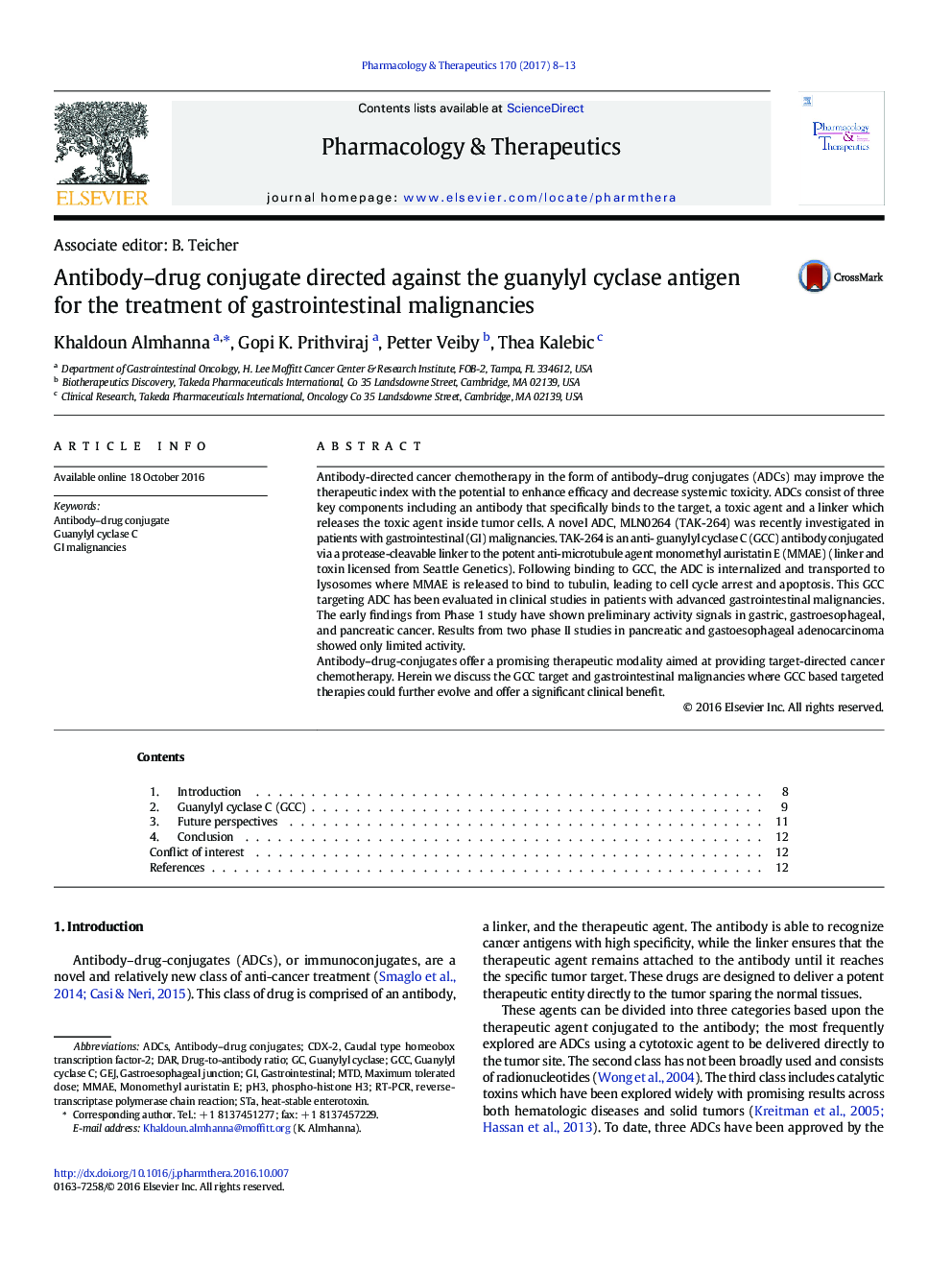| Article ID | Journal | Published Year | Pages | File Type |
|---|---|---|---|---|
| 5557707 | Pharmacology & Therapeutics | 2017 | 6 Pages |
Antibody-directed cancer chemotherapy in the form of antibody-drug conjugates (ADCs) may improve the therapeutic index with the potential to enhance efficacy and decrease systemic toxicity. ADCs consist of three key components including an antibody that specifically binds to the target, a toxic agent and a linker which releases the toxic agent inside tumor cells. A novel ADC, MLN0264 (TAK-264) was recently investigated in patients with gastrointestinal (GI) malignancies. TAK-264 is an anti- guanylyl cyclase C (GCC) antibody conjugated via a protease-cleavable linker to the potent anti-microtubule agent monomethyl auristatin E (MMAE) (linker and toxin licensed from Seattle Genetics). Following binding to GCC, the ADC is internalized and transported to lysosomes where MMAE is released to bind to tubulin, leading to cell cycle arrest and apoptosis. This GCC targeting ADC has been evaluated in clinical studies in patients with advanced gastrointestinal malignancies. The early findings from Phase 1 study have shown preliminary activity signals in gastric, gastroesophageal, and pancreatic cancer. Results from two phase II studies in pancreatic and gastoesophageal adenocarcinoma showed only limited activity.Antibody-drug-conjugates offer a promising therapeutic modality aimed at providing target-directed cancer chemotherapy. Herein we discuss the GCC target and gastrointestinal malignancies where GCC based targeted therapies could further evolve and offer a significant clinical benefit.
